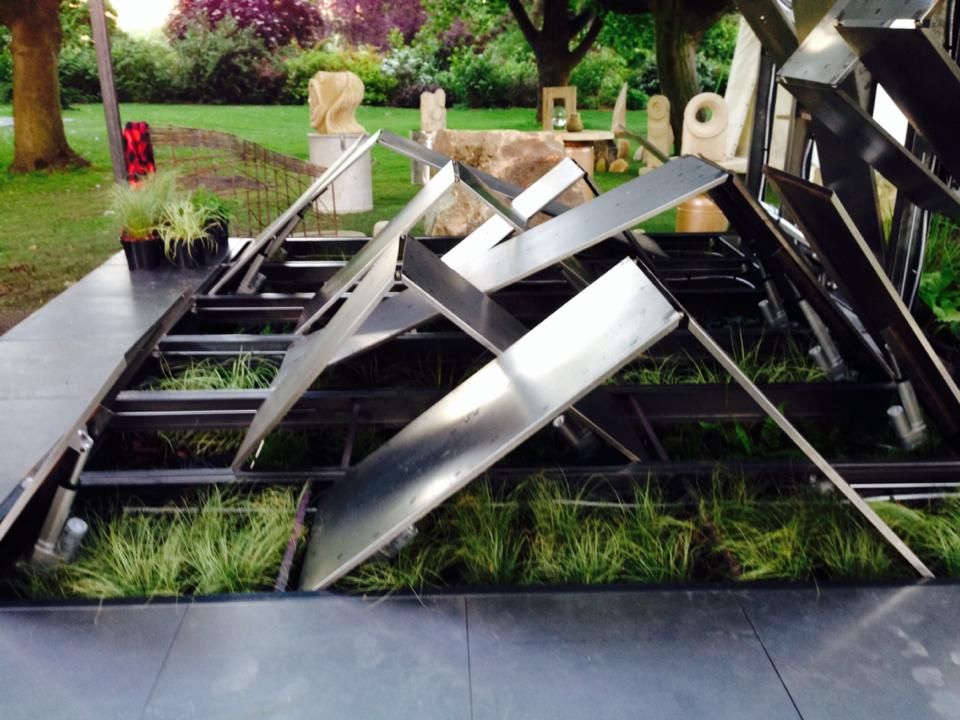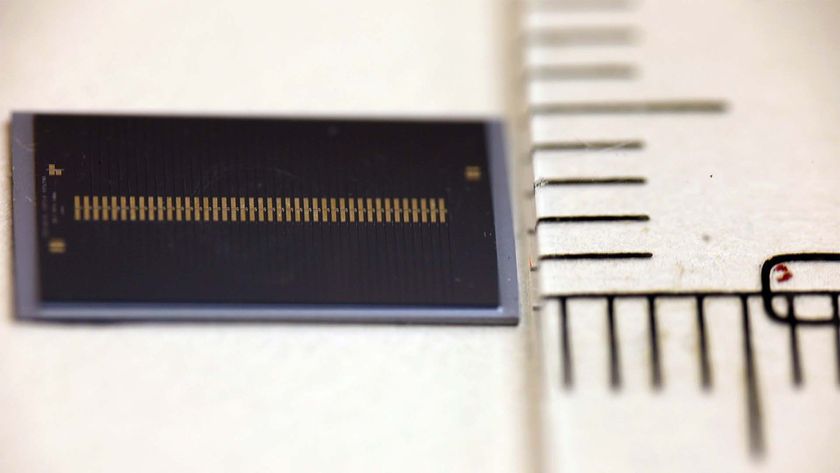'Smart' Garden Morphs to Reflect Moods of Visitors

A high-tech garden that can change the way it looks and alter other parts of its environment depending on the reactions of people on Twitter, has been created in the United Kingdom. This futuristic, social media garden could one day inspire the development of "smart" buildings that adapt to people's emotional states, researchers say.
The experimental digital garden is part of the STAN (Science Technology Architecture Networks) research project at the University of Lincoln, in the United Kingdom. The project is designed to explore whether architecture can reflect and map human emotions.
The garden consists of a raw steel structure that responds to people's Twitter updates. As people tweet about their surroundings, the structure continually remodels itself, the project's designers said. [See photos of the experimental "smart" garden]
The researchers presented the project last month at a horticultural event, called Garden Up, in Sheffield, England.
The garden reacted to social media activity when people tweeted using the hashtag #gardenup. Specially designed software then translated the reactions on Twitter into movements within the garden's mechanical landscape.
"We exist in a dynamic flux of social information. The software aims to intercept and expose some of this data in a tangible representation," Duncan Rowland, a researcher at the University of Lincoln's School of Computer Science, who developed the software application, said in a statement.
"The garden essentially points to a future in which buildings could modify themselves in response to monitoring our emotional state via social media," Richard Wright, a senior lecturer at the Lincoln School of Architecture, said in a statement.
Sign up for the Live Science daily newsletter now
Get the world’s most fascinating discoveries delivered straight to your inbox.
Future "smart" buildings could also reflect the moods of their inhabitants, for instance, by changing color or shape, "constantly remapping our perception of our urban environment, with facades becoming animated, reflective and mobile in response to communal desires and emotions," Wright said.
The Twitter-reactive garden was inspired by another structure, the University of Lincoln's Digital Capabilities garden, which took home the coveted gold medal at the Royal Horticultural Society's Chelsea Flower Show in 2013.
Follow Agata Blaszczak-Boxe on Twitter. Follow Live Science @livescience, Facebook & Google+. Originally published on Live Science.












